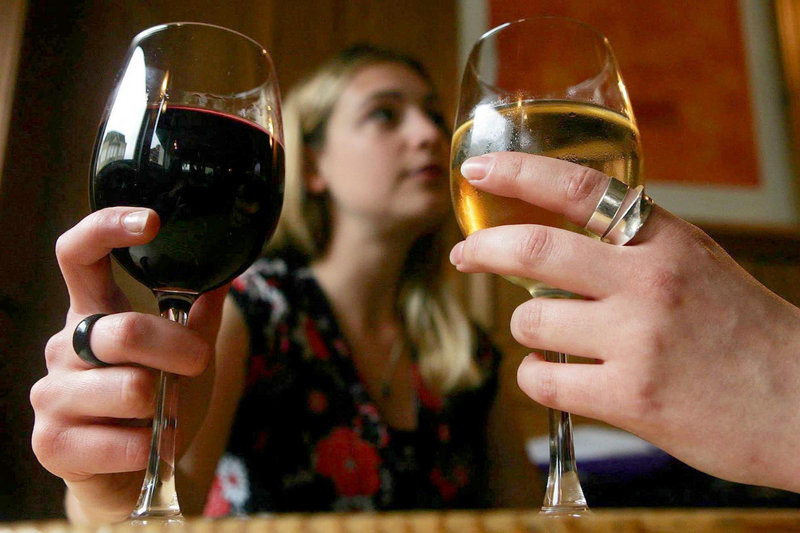Even indulging in just a few drinks a week raises a woman’s risk of breast cancer, according to a large Harvard study released Tuesday.
The analysis of data collected from nearly 106,000 nurses over 28 years found that those who imbibed as sparingly as three to six glasses of wine or any other alcoholic drink per week were slightly more likely to develop breast cancer than teetotalers.
Although doctors have long known that women who drank more than about one drink a day were more likely to be diagnosed with breast cancer, the new analysis marks the first clear evidence that even those who consume that amount or less are at increased risk.
“What is novel about our study is we had enough power to ask the question at lower levels of alcohol consumption,” said Wendy Y. Chen, an assistant professor of medicine at Harvard Medical School who led the study published in today’s Journal of the American Medical Association. “We found a significantly increased risk starting at three to six drinks a week.”
The findings are the latest medical advice about alcohol. For years, doctors advised that women could safely consume about a drink a day, which could be healthful by reducing their risk for heart attacks. Men could get away with two. More than that has long been known to have more risks than benefits, especially for breast cancer among women. Scientists believe alcohol can cause breast cancer by hiking estrogen levels.
Many experts urged caution, however, about overreacting to the new findings. The slight increased risk for breast cancer from such low alcohol consumption was probably still outweighed for many women by the reduction in the risk for heart attacks, which by far kills more women than breast cancer.
But Chen and others said the new findings should prompt women to individually calculate their risks and benefits of alcohol consumption.
“You need to weigh the benefits that would come for cardiovascular disease against possible increased in breast cancer risk. We know that low levels of consumption do appear to be good in terms of heart health,” said Louise Brinton of the National Cancer Institute.
For the study, Chen and her colleagues analyzed data collected from 105,986 women ages 30 to 55 who took part in the Nurses’ Health Study, an ongoing project scrutinizing a host of women’s health issues, from 1980 to 2008.
Send questions/comments to the editors.



Success. Please wait for the page to reload. If the page does not reload within 5 seconds, please refresh the page.
Enter your email and password to access comments.
Hi, to comment on stories you must . This profile is in addition to your subscription and website login.
Already have a commenting profile? .
Invalid username/password.
Please check your email to confirm and complete your registration.
Only subscribers are eligible to post comments. Please subscribe or login first for digital access. Here’s why.
Use the form below to reset your password. When you've submitted your account email, we will send an email with a reset code.